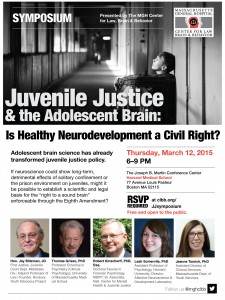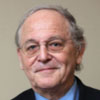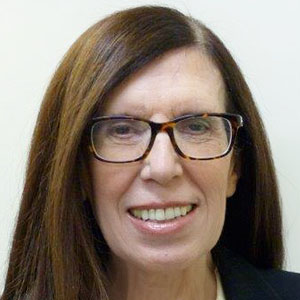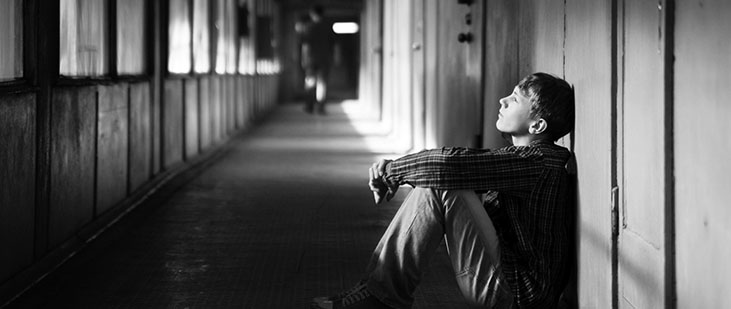
Adolescent brain science has already transformed juvenile justice policy. As we see from recent Supreme Court rulings that ended the death penalty and life without parole for juveniles, the Court is predisposed to appreciate arguments that indicate that adolescents are neurobiologically different from adults.
Brain science may also elucidate neurodevelopmental implications for juvenile offenders subject to prolonged removal from the community, facilities with limited educational and rehabilitative resources, solitary confinement, or transfer to the adult criminal system for trial and incarceration as an adult. If these conditions can be shown to have long-term, detrimental effects on the adolescent brain, might it be possible to establish a scientific and legal basis for the “right to a sound brain,” or a healthy context for brain development, enforceable through the Eighth Amendment?
On Thursday, March 12, 2015, the MGH Center for Law Brain & Behavior’s Juvenile Justice working group presented a public symposium at the Joseph B. Martin Conference Center of Harvard Medical School bringing together a juvenile court Judge (Hon. Jay Blitzman), forensic mental health evaluation and juvenile justice policy expert (Thomas Grisso), adolescent developmental neuroscientist (Leah Somerville), and Department of Youth Services clinician (Jeanne Tomich) to elucidate this question. Robert Kinscherff, forensic psychologist and Senior Associate at the National Center for Mental Health and Juvenile Justice, moderated the conversation.
 The Honorable Jay D. Blitzman, JD, is First Justice, Juvenile Court Department, Middlesex Division. He teaches juvenile law at Northeastern University School of Law, a seminar on juvenile justice at UMass Lowell School of Criminology and Justice Studies, and is a Team Leader in Harvard Law School’s Trial Advocacy Workshop. Judge Blitzman was a founder and the first director of the Roxbury Youth Advocacy Project, a community based interdisciplinary public defenders unit. He also co-founded Citizens for Juvenile Justice. He is currently an advisory member on the board of the Juvenile Court Restorative Justice Diversion Project in Middlesex County, and is piloting a judicial-school outreach program. Jay publishes and lectures on juvenile and child welfare issues.
The Honorable Jay D. Blitzman, JD, is First Justice, Juvenile Court Department, Middlesex Division. He teaches juvenile law at Northeastern University School of Law, a seminar on juvenile justice at UMass Lowell School of Criminology and Justice Studies, and is a Team Leader in Harvard Law School’s Trial Advocacy Workshop. Judge Blitzman was a founder and the first director of the Roxbury Youth Advocacy Project, a community based interdisciplinary public defenders unit. He also co-founded Citizens for Juvenile Justice. He is currently an advisory member on the board of the Juvenile Court Restorative Justice Diversion Project in Middlesex County, and is piloting a judicial-school outreach program. Jay publishes and lectures on juvenile and child welfare issues.
 Thomas Grisso, PhD is Professor Emeritus in Psychiatry (Clinical Psychology) at the University of Massachusetts Medical School. In addition to engaging in research and teaching in the University’s Law and Psychiatry Program, he consults to federal and state programs on policy and forensic practice in the juvenile justice system. Research performed with the MacArthur Foundation’s Research Network on Adolescent Development and Juvenile Justice was relied upon by the U.S. Supreme Court in its recent decisions against the death penalty and limiting the sentence of life without parole for crimes committed during adolescence.
Thomas Grisso, PhD is Professor Emeritus in Psychiatry (Clinical Psychology) at the University of Massachusetts Medical School. In addition to engaging in research and teaching in the University’s Law and Psychiatry Program, he consults to federal and state programs on policy and forensic practice in the juvenile justice system. Research performed with the MacArthur Foundation’s Research Network on Adolescent Development and Juvenile Justice was relied upon by the U.S. Supreme Court in its recent decisions against the death penalty and limiting the sentence of life without parole for crimes committed during adolescence.
 Robert Kinscherff, PhD, JD is Faculty in the Doctoral Program in Clinical Psychology (forensic psychology, Concentration in Children and Families of Adversity and Resilience) and Associate Vice President for Community Engagement at the Massachusetts School of Professional Psychology. He is also Senior Associate at the National Center for Mental Health and Juvenile Justice. Dr. Kinscherff also serves as a forensic examiner for the Massachusetts Parole Board with a focus upon assessments of adults convicted of homicides and with significant mental health needs. Dr. Kinscherff has held various government, teaching, professional service, and policy advisory/development positions, reflecting interests in clinical and forensic practice with juvenile and adult offenders, risk assessment and management, ideologically-motivated violence, and the developmental impact of childhood exposures to adversity and trauma.
Robert Kinscherff, PhD, JD is Faculty in the Doctoral Program in Clinical Psychology (forensic psychology, Concentration in Children and Families of Adversity and Resilience) and Associate Vice President for Community Engagement at the Massachusetts School of Professional Psychology. He is also Senior Associate at the National Center for Mental Health and Juvenile Justice. Dr. Kinscherff also serves as a forensic examiner for the Massachusetts Parole Board with a focus upon assessments of adults convicted of homicides and with significant mental health needs. Dr. Kinscherff has held various government, teaching, professional service, and policy advisory/development positions, reflecting interests in clinical and forensic practice with juvenile and adult offenders, risk assessment and management, ideologically-motivated violence, and the developmental impact of childhood exposures to adversity and trauma.
 Leah Somerville, PhD is Assistant Professor of Psychology at Harvard University and Director of the Affective Neuroscience and Development Laboratory. Dr. Somerville is also a faculty member of the Harvard Center for Brain Science and the Harvard Mind/Brain/Behavior Initiative. Professor Somerville’s research focuses on drawing linkages between trajectories of brain development and changes in emotional, social, and regulatory processes as they change throughout adolescence. Currently, her work has focused on understanding how social and emotional cues selectively influence adolescents’ decision making capabilities, how incentives shape adolescent regulatory behavior, and the neurodevelopmental mechanisms that underlie heightened anxiety and self-conscious emotion during adolescence.
Leah Somerville, PhD is Assistant Professor of Psychology at Harvard University and Director of the Affective Neuroscience and Development Laboratory. Dr. Somerville is also a faculty member of the Harvard Center for Brain Science and the Harvard Mind/Brain/Behavior Initiative. Professor Somerville’s research focuses on drawing linkages between trajectories of brain development and changes in emotional, social, and regulatory processes as they change throughout adolescence. Currently, her work has focused on understanding how social and emotional cues selectively influence adolescents’ decision making capabilities, how incentives shape adolescent regulatory behavior, and the neurodevelopmental mechanisms that underlie heightened anxiety and self-conscious emotion during adolescence.
 Jeanne Tomich, PhD is the Assistant Director of Clinical Services for the Massachusetts Department of Youth Services. Dr. Tomich supports efforts in delivering appropriate clinical services to youth in the juvenile justice system and provides consultation to DYS clinical staff and administrators. Dr. Tomich oversees numerous clinical strategies for DYS including Dialectical Behavioral Therapy, and Family Engagement initiatives. She previously worked in the Massachusetts Court Clinic system for 10 years and is trained as a forensic psychologist. During that time she participated in the study of adjudicative competence in juveniles as part of the MacArthur Foundation Research Network.
Jeanne Tomich, PhD is the Assistant Director of Clinical Services for the Massachusetts Department of Youth Services. Dr. Tomich supports efforts in delivering appropriate clinical services to youth in the juvenile justice system and provides consultation to DYS clinical staff and administrators. Dr. Tomich oversees numerous clinical strategies for DYS including Dialectical Behavioral Therapy, and Family Engagement initiatives. She previously worked in the Massachusetts Court Clinic system for 10 years and is trained as a forensic psychologist. During that time she participated in the study of adjudicative competence in juveniles as part of the MacArthur Foundation Research Network.
Watch video of the entire “Juvenile Justice & the Adolescent Brain” event below, or explore past events on pain, memory, free will, and criminal responsibility, on CLBB’s Vimeo channel.



